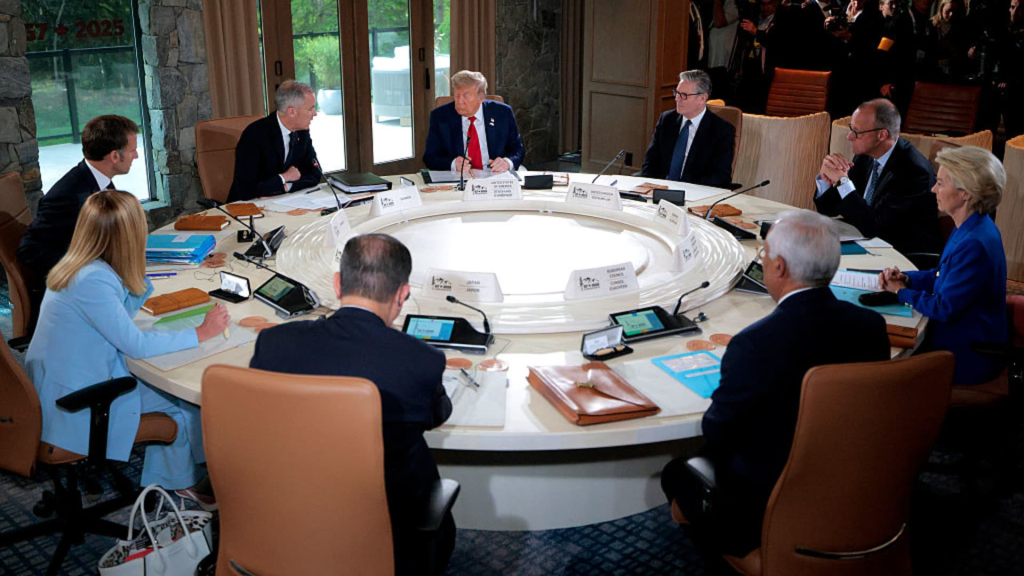Leaders from the Group of Seven (G7) reiterated their unwavering support for Israel and called for a peaceful resolution to the rising tensions in the Middle East on Tuesday, amid ongoing military exchanges between Tel Aviv and Tehran.
In a joint statement, the G7 declared, “We affirm that Israel has a right to defend itself. We reiterate our support for the security of Israel.”
Additionally, the leaders denounced Iran as the “principal source of regional instability and terror,” maintaining their position that the nation must be prevented from acquiring nuclear weapons.
The leaders emphasized the urgent need for a resolution to the “Iranian crisis” and called for a broader reduction of hostilities in the region, which includes advocating for a ceasefire in Gaza.
In a notable absence, U.S. President Donald Trump did not participate in the summit’s second day due to the ongoing developments in the Middle East, as stated by White House Press Secretary Karoline Leavitt in a post on X.
The G7 nations include the U.S., U.K., Canada, France, Germany, Italy, and Japan, while this year’s summit also brought together leaders from the European Union, Australia, Brazil, Mexico, Ukraine, and South Korea.
This annual gathering aims to forge consensus on critical global economic and geopolitical issues while coordinating respective responses. A significant topic of discussion this year involves Trump’s tariff policies, which have complicated global economic growth prospects.
Another contentious topic at the summit is the ongoing support for Ukraine juxtaposed with Russia’s potential rehabilitation. Trump signaled a reluctance to implement stricter sanctions against Russia, downplaying the insistence from allied leaders to ramp up pressure on Moscow for negotiations.
During a session with Canadian Prime Minister Mark Carney, Trump expressed that the G7, formerly the G8, made a critical error by excluding Russia in 2014.
This stance from the G7 contrasts sharply with that of China, which has criticized Israel’s military actions against Iran and is positioning itself as a peacemaker in the area. Chinese Foreign Minister Wang Yi conveyed to both Israeli and Iranian leaders that China is prepared to take a constructive role in alleviating tensions.


























